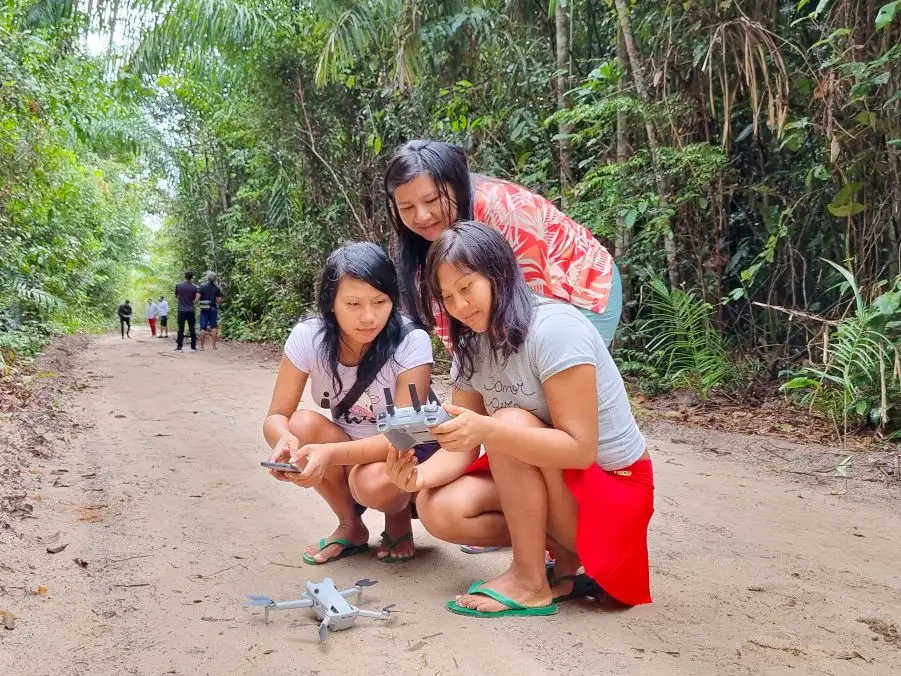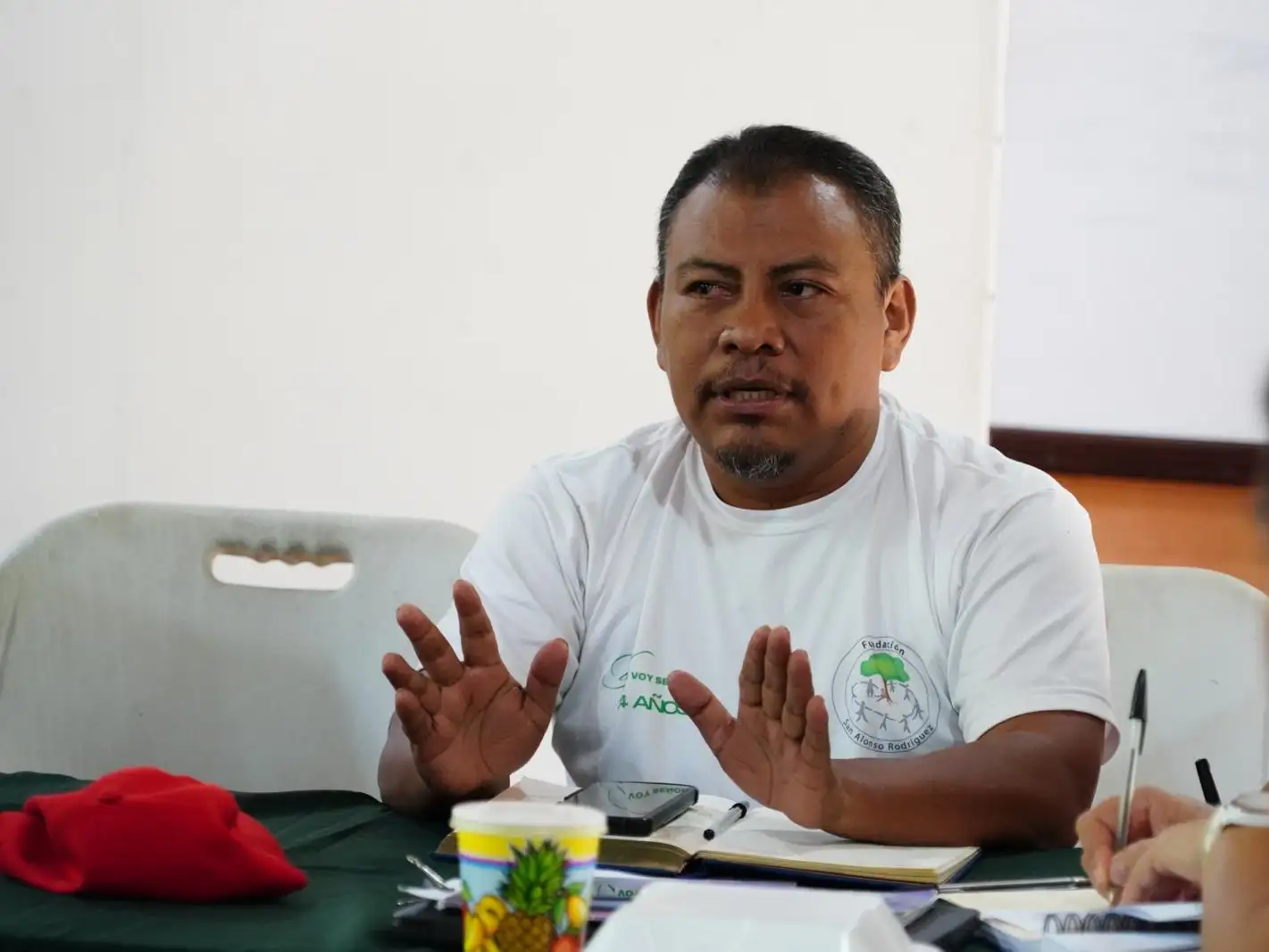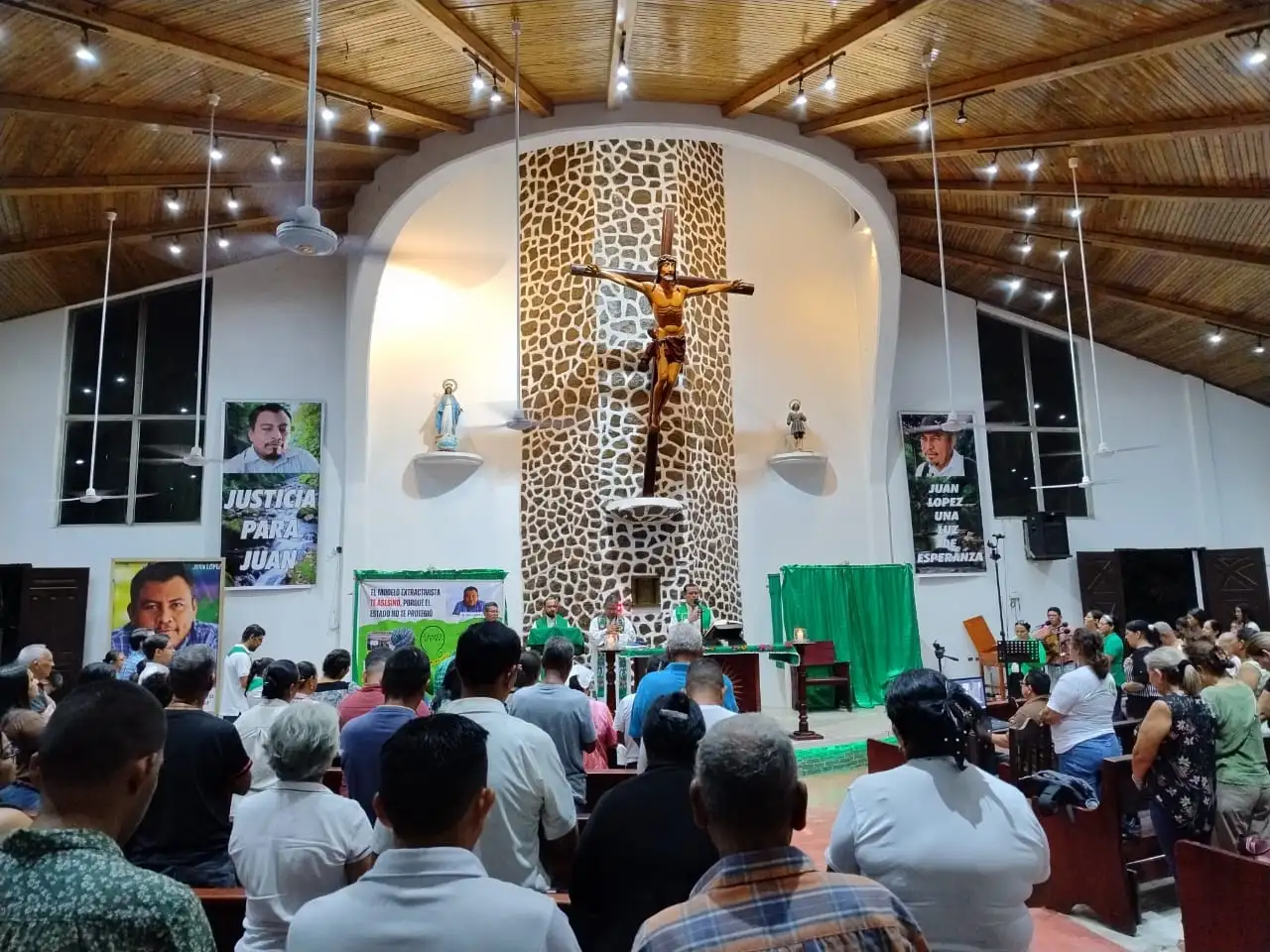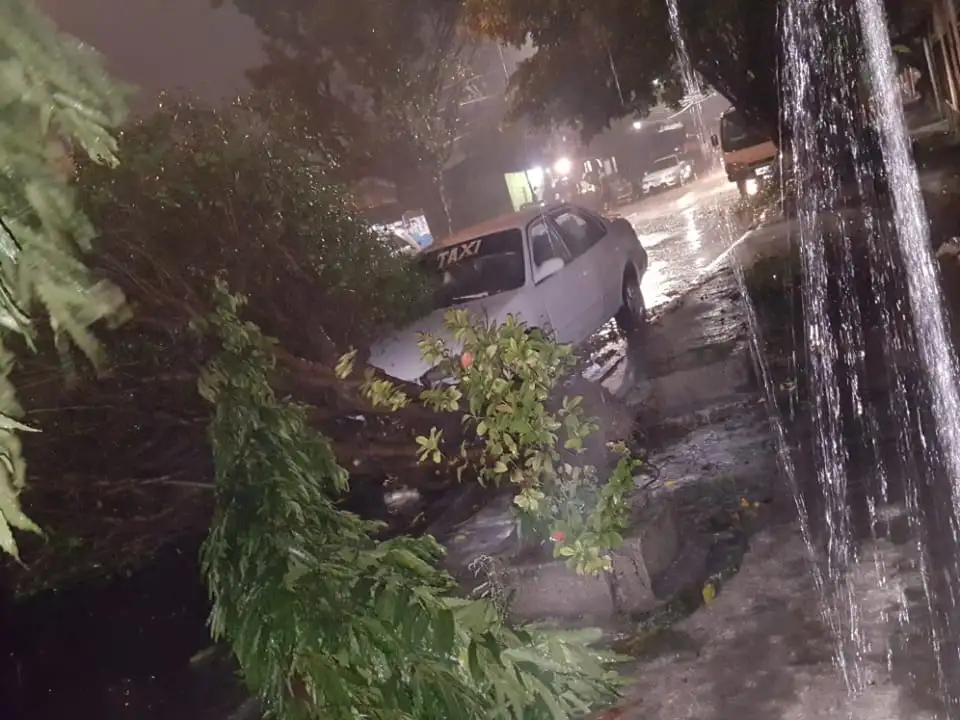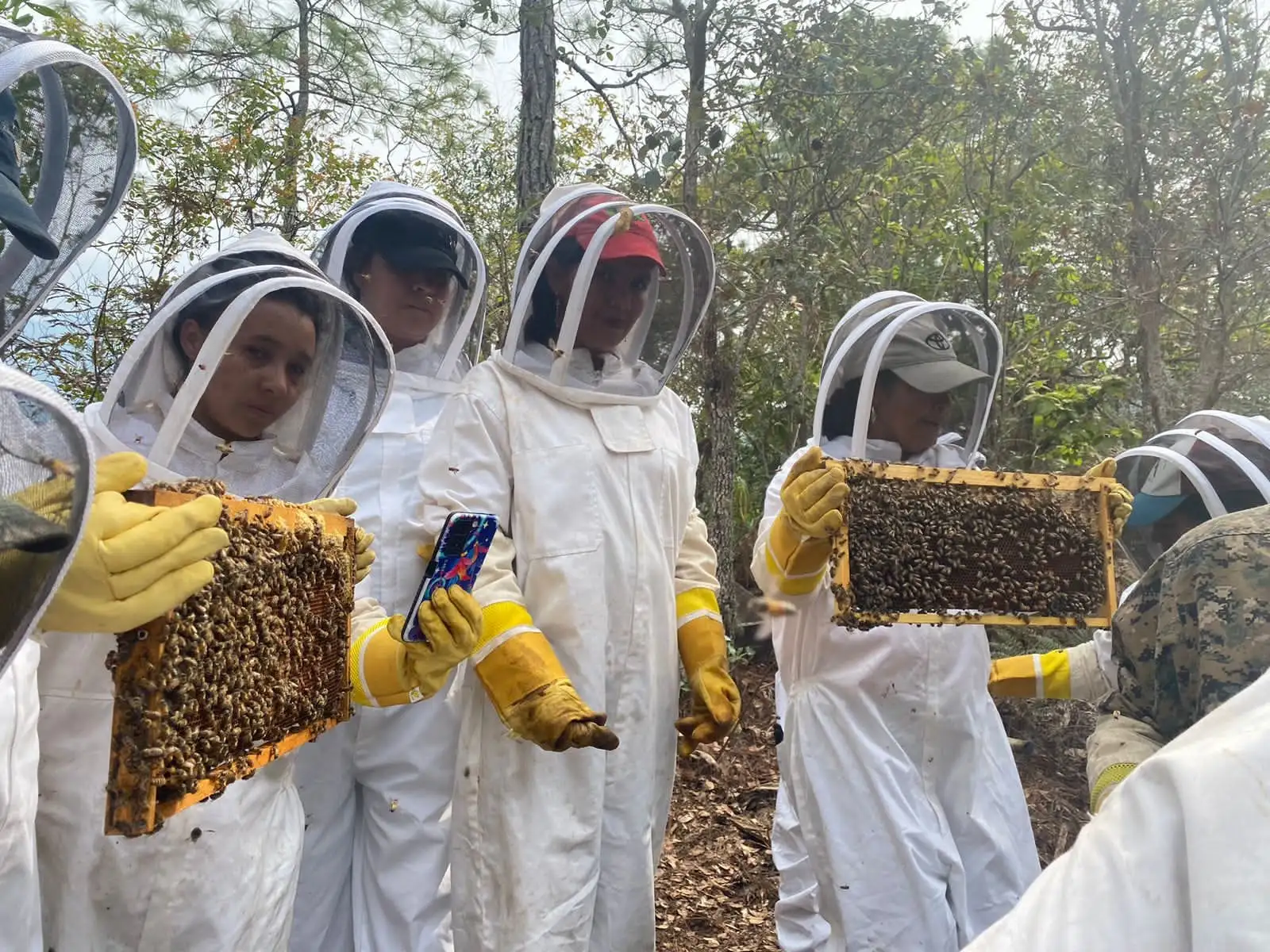

Farmers learning more about environmentally friendly and traditional farming techniques as well as how to protect biodiversity
With over 60 per cent of the population living in poverty, Honduras is one of the poorest and most unequal countries in the world. It is also one of the countries most affected by the climate crisis, with the ‘dry corridor’ making Honduras particularly vulnerable to prolonged droughts, erratic rainfall and other extreme weather events that devastate crops and livelihoods.
Rural communities, small-scale farmers and indigenous groups face severe challenges in accessing nutritious food, clean water, sanitation and healthcare, leaving them highly exposed to the combined effects of environmental shocks, economic inequality and ongoing violence.
Due to systemic violations of rights, weak and corrupt institutions, as well as a lack of access to justice, Honduras has become one of the most dangerous places in the world for human rights defenders.
Gender-based violence continues to be a huge challenge for women and girls in Honduras. As a result, the country has one of the highest femicide rates in Latin America. Over 95 per cent of violent deaths go unpunished, leading to a systemic cycle of impunity.
In response to these multi-layered challenges, thousands of Hondurans migrate each year and the remittances they send home are a crucial source of income for many families.
A better world needs all of us. That’s why CAFOD has been working together with local partners in Honduras since the 1960s to challenge systemic governance and justice issues, alleviate poverty, promote gender equality, protect the environment and support indigenous communities to stand up for their land rights.
Our impact in 2024
In 2024 we reached 6,322 people in Honduras.
CAFOD partners have supported 2,337 people to improve their diets and access to sufficient food through environmentally friendly farming, engaging in cooperatives and strengthening local businesses.
We supported 577 environmental and human rights defenders and local leaders defending land, water and ecosystems by supporting access to justice, legal support and peacebuilding in areas affected by conflict.
CAFOD partners are working for justice for cases of human rights abuses in the Aguan valley that have contributed to nationwide legal reforms for the protection of the ecosystems in Carlos Escaleras National Park, including the Guapinol and San Pedro rivers that serve 14,000 people.
Why CAFOD works in Honduras
Over 7 million people in Honduras live in poverty due to uneven economic growth, inequality, violence, displacement and the impact of the climate crisis.
Farmers in Honduras’ 'dry corridor’ face severe challenges from extreme weather events such as hurricanes, droughts and floods, caused by the climate crisis, that damage crops, limit families' access to food and threaten their ability to earn a living.
As a result of patriarchal social norms, women and girls in Honduras have fewer opportunities and remain vastly excluded from decision-making processes both as individuals and in their communities. This exclusion reinforces cycles of inequality, reduces access to education, healthcare and economic resources, and increases violence, exploitation and the social and environmental impacts of crises such as poverty and climate change.
Honduras’ economy relies heavily on agriculture and extractive industries (such as mining, oil, logging) as well as hydroelectric projects, which often lead to negative social and environmental impacts, such as land grabbing, killings, environmental destruction and human rights abuses. Honduras is recognised as the country with the highest rates of killings per capita of environmental and human right defenders in the world, with small scale farmers, indigenous and Afro-descendant communities being most at risk.
The Central America migration crisis remains an unprecedented humanitarian crisis with record numbers of displaced people trying to escape gang violence, poverty and food insecurity. With shifting foreign policies around the world, migrants from Central America and the Latin America region are becoming increasingly stranded without support. CAFOD partners report a sharp rise in human trafficking, disappearances and abuse, with women and girls disproportionately at risk.
How we’re responding
CAFOD partners support local communities - particularly women, girls, indigenous and Afro-descendant communities - to defend their human rights, their rights to food, access to water, to defend land and natural resources, and to protect their indigenous rights. With our partners' support communities are engaging with authorities at local, national and international levels to document human rights abuses and advocate for legislation that holds companies accountable for harm caused by international supply chains and extractive industries.
CAFOD partners provide legal and psychosocial support to human rights defenders, with a focus on ensuring women and indigenous leaders are recognised and protected. We bring partners and defenders together to raise awareness, share learning on protection measures, and highlight the vital contributions of women and indigenous peoples in defending natural resources.
CAFOD’s partners support rural and indigenous communities, with a focus on women and girls, to strengthen their access to food by improving agricultural yields and working with farmers to enhance nutrition through home gardens and diversifying their crops.
Our partners are also helping households better adapt to the climate crisis: farmers are learning more about environmentally friendly farming techniques, including soil and seed preservation as well as biodiversity protection; and rural communities are revitalising traditional farming knowledge. By actively including women in these initiatives, we’re aiming to ensure equal opportunities in decision-making processes.
CAFOD’s partners are supporting food systems transformation and food sovereignty through resilient approaches such as native seeds protection, as well as highlighting the importance of ancestral farming methods.
CAFOD’s partners are supporting local communities, particularly rural and indigenous families, to access credit and markets, helping to build vibrant, equitable and inclusive rural economies. Our partners are working closely with communities to strengthen local businesses, women’s empowerment, food sovereignty and respect for the environment. Local producers, including women farmers, are receiving training on small business development and learning more about commercially viable enterprises, enabling them to bring their produce, such as sugarcane, to market.
Honduras is undergoing a multifaceted humanitarian crisis driven by entrenched poverty, pervasive violence, climate-induced disasters and systemic governance challenges. Approximately 2.8 million people, representing nearly 30 per cent of the population, are in urgent need of humanitarian assistance.
In addition to the challenges of Hondurans fleeing their country, Honduras itself has become a transit point for migrants from other Latin American and Caribbean countries, many of whom face threats of extortion, trafficking and gender-based violence. This dual challenge has left migrants stranded, vulnerable and in urgent need of humanitarian support.
CAFOD and our partners are responding to emergencies including the Central America migrant crisis by providing immediate humanitarian assistance to support their basic needs and psychosocial support, as well as legal support, guidance and research on migrant patterns.
Red de Comercialización Comunitaria Alternativa (Red COMAL)
Fundación Equipo de Reflexión, Investigación y Comunicación /Radio Progreso
Centro Hondureño para la Promoción y el Desarollo Comunitario
Caritas Honduras
News from Honduras
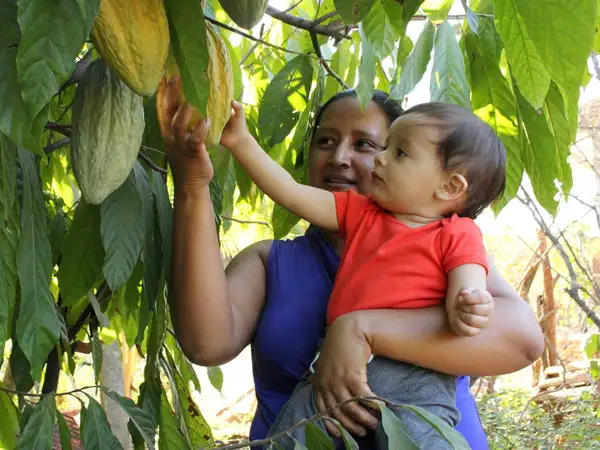
What we do
CAFOD is the official aid agency for the Catholic Church in England and Wales.
With your help, we reach out to people living in hard-to-reach places, in war zones and those who are discriminated against.


